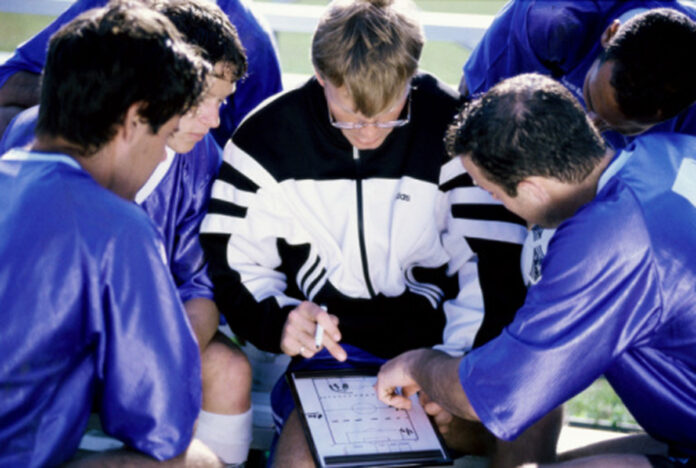Sports can be an exciting and rewarding career choice for individuals who are passionate about athletics and want to work in a fast-paced and competitive industry. However, succeeding in the sports industry requires more than just natural talent or physical ability. To excel in this field, individuals must possess a series of skills. After all, sports is a highly competitive field. Whether an athlete on the field or a professional in a sports-related career, individuals must possess the skills necessary to succeed and excel in their roles.
To that end, here’s a list of skills and characteristics you must hone if you want to dominate the sports industry:
1. Communication skills

Communication skills are critical for anyone working in the sports industry. Athletes need to communicate effectively with their coaches and teammates. In contrast, coaches need to convey their game plans and strategies to their teams. Another critical area where communication skills matter the most is sports nutrition. As a sports nutritionist, you must communicate effectively with coaches, athletes, and other industry professionals to build trust and offer practical nutrition advice to athletes.
If sports nutrition is the career you’re willing to pursue, getting a certificate in this domain is crucial. Fortunately, online sports nutrition certificate course are available these days, offering aspirants a convenient way to pursue their passion. These online certificates offer individuals the knowledge and skills needed to become certified sports nutritionists and work with athletes and fitness enthusiasts.
2. Passion and dedication
One of the most critical qualities you need to build a career in sports is passion and dedication. Without a genuine love for the sport, it can be challenging to maintain the drive and motivation to succeed.
Athletes, coaches, and other sports professionals work long hours and often face setbacks and challenges. Only those passionate about their work can stay committed and focused on their goals.
3. Discipline and work ethic

Discipline and work ethic are essential traits for anyone looking to build a career in sports. Athletes and coaches must adhere to a strict training regimen, follow a healthy diet, and maintain a healthy lifestyle. Similarly, sports journalists and marketers need to be disciplined in their work approach, meet deadlines, and stay organized. A strong work ethic and discipline can set you apart from the competition and help you achieve your goals.
4. Teamwork and collaboration
Teamwork and collaboration are essential skills for athletes and coaches but are also vital for anyone working in the sports industry. Whether working on a marketing campaign or covering a sporting event, working effectively with others can help you achieve your goals. Collaboration can lead to new ideas, increased productivity, and better results.
5. Problem-solving skills

Sports can be unpredictable, and unexpected challenges can arise at any moment. Athletes and coaches need to be able to adapt to unexpected circumstances and come up with innovative solutions to problems. Similarly, sports journalists and marketers need to be able to identify and solve issues that arise in their work. Thinking critically and finding solutions to problems can help you overcome obstacles and succeed in your career.
6. Leadership skills
Leadership skills are essential for coaches, team captains, and just about anyone in the sports industry. Whether you are managing a team, leading a marketing campaign, or writing a story, being able to inspire and motivate others can help you achieve your goals.
Leadership skills include communicating effectively, making tough decisions, being emotionally intelligent, and leading by example.
7. Time management skills
Time management is critical for anyone working in the sports industry. Athletes need to balance their training and competition schedules with their personal lives. In contrast, coaches need to manage their team’s training and game schedules. Sports journalists and marketers must meet deadlines and manage their time effectively to produce high-quality work. Being able to prioritize activities and manage your time efficiently can help you achieve your goals and avoid burnout.
8. Analytical skills

Analytical skills are essential for anyone working in the sports industry. Coaches must analyze game footage and statistics to develop game plans and strategies. In contrast, sports journalists must analyze data and trends to draft informed stories. Sports marketers must analyze customer behavior and market trends to develop effective marketing campaigns. Analyzing data and drawing meaningful insights can help you make informed decisions and improve your performance.
9. Creativity
Creativity is essential in the sports industry because it can help professionals develop innovative solutions, create engaging content, and stand out in a highly competitive field. Whether you are an athlete, coach, sports journalist, or sports marketer, being creative can help you attain your goals and make a lasting impact.
One area where creativity is crucial in the sports industry is in developing game plans and strategies. Coaches must be creative in their training and game preparation approaches to stay ahead of competitors. They must devise innovative ways to improve their team’s performance, adapt to changing circumstances, and exploit their opponent’s weaknesses. Similarly, athletes must be creative in their training and competition approaches to maximize their potential and gain a competitive edge.
10. Handling pressure

One of the primary reasons handling pressure is essential in sports is that it can impact an athlete’s performance. When athletes are under pressure, they can experience physical and mental symptoms that can impair their ability to perform. For example, they may experience increased heart rate, rapid breathing, and muscle tension, affecting their coordination, reaction time, and overall physical ability. They may also experience anxiety, stress, and negative self-talk, decreasing confidence, focus, and motivation. Handling pressure can help athletes overcome these symptoms and perform at their best.
In addition to performance and team success, handling pressure is essential for athletes’ well-being. Athletes face intense scrutiny and expectations from coaches, fans, and the media, leading to significant stress and anxiety. Effective pressure management can help athletes manage their stress levels and avoid burnout, depression, and other adverse mental health outcomes.
Wrapping Up
While some individuals may naturally possess these skills and qualities, they can also be developed and improved through practice, training, and experience. Building a successful career in sports also requires a passion for the industry, a commitment to hard work, and a zeal to learn and grow continuously.
Whether you’re just starting your career in sports or are a seasoned professional, developing these skills and qualities can help you attain your goals and make an impressionable and lasting impact in the industry. By continually improving and honing your skills, you can position yourself as a valuable individual to your team or organization and open up new opportunities for growth and advancement in your career.







